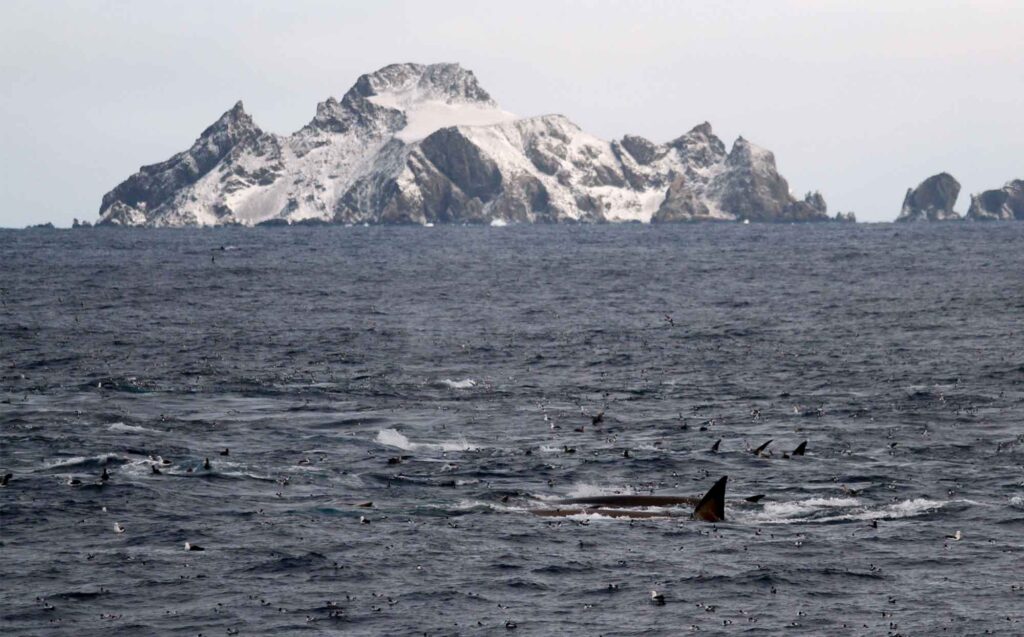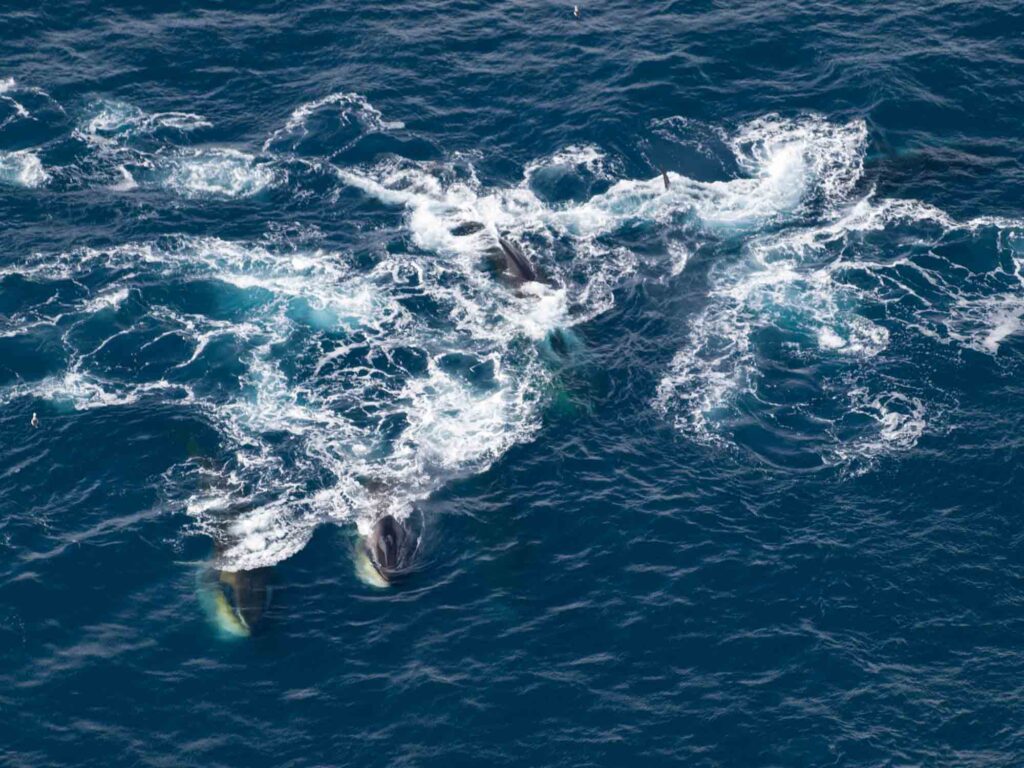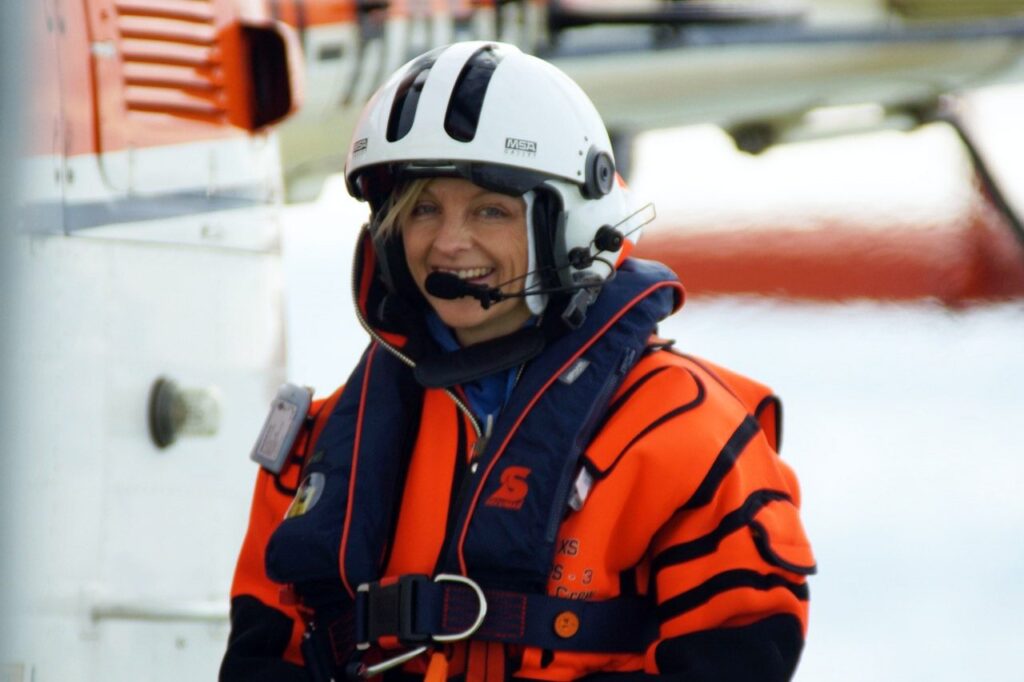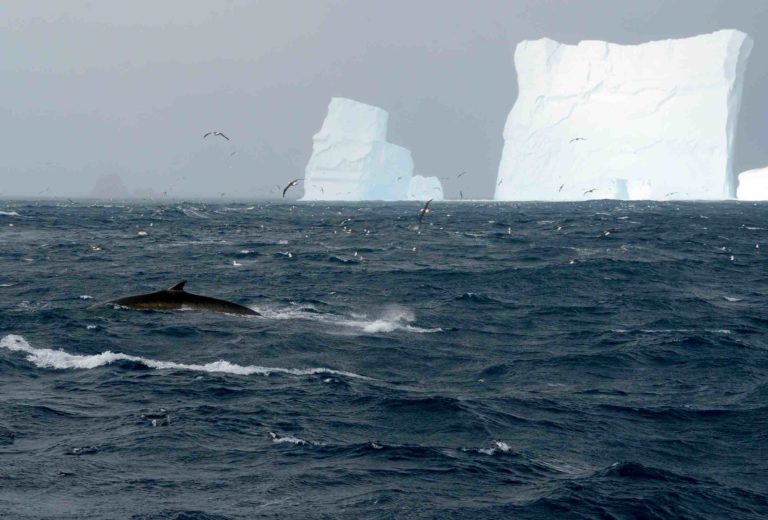Marine biologist Dr Helena Herr and her team from the University of Hamburg have been researching whales in the Antarctic for the past 13 years – but only now, with completion of a new study, have they been able to confirm that the fin whale population is making a dramatic recovery.
Also read: Beginning of the end for whaling?
Southern fin whales are a subspecies that grow to an average length of 22m on a diet of krill and small schooling fish. The Antarctic population was reduced to a mere 1-2% of its original size by hunting during the 20th century, and the few remaining whales had seemed to have forsaken their old feeding grounds.
The study was based on analysis of data from expeditions carried out in 2018 by the research ship Polarstern, led by Alfred Wegener Institute biologist Prof Bettina Meyer, and in 2019 by the BBC from the Pelagic Australis.


The teams used line transects from ship, helicopter and drone over a 93,000sq km study area to calculate animal density from sightings and observed distribution. With the data fed into a model to take account of parameters such as water depth and distance offshore, the area was estimated to host in the region of 7900 fin whales (Balaenoptera physalus quoyi).
Groups of up to 150 whales were being spotted in the foraging grounds, a spectacle unknown since the start of the 20th century.
It was at that time that the blue and humpback whales that stayed closer to the coast had almost been eradicated and the whalers had therefore turned to fin whales further offshore until their hunting was banned in 1976.
The return of big groups of fin whales suggests not only population recovery but also the re-establishing of historical behaviour. “They were some of the most spectacular natural phenomena that I have seen so far,” said Dr Herr of the mass sightings. “It was an incredibly impressive experience to see the water ‘boil’ with these huge animals eating together and stirring up the ocean.

“In 1976 the hunt for fin whales was stopped and today, almost 50 years later, we again have several thousand animals in just a small part of Antarctica. This is a positive sign in times of species extinction, biodiversity loss and climate change.”
The recovery is important for the ecosystem because fin whale excrement, rich in nutrients such as iron, benefits micro-organisms living in the upper water layers. This “whale pump” effect is an important part of the fight against climate change, because such organisms absorb large amounts of carbon dioxide.
Humpback whales have also recovered strongly since the end of whaling but Dr Herr pointed out that more work needed to be done to find out why southern right and (despite earlier encouraging reports) Antarctic blue whales seemed to be making little or very slow recovery from their severe depletion.
“All in all, I would say that there is hope for the whales, but that it is closely linked to the general threats to our environment – above all climate change, which must be countered for the benefit of all living beings,” she aid. The study is published in the journal Scientific Reports.
Sato’s whales: first encounter
Meanwhile scientists in Japan have confirmed the first-ever live sightings of Sato’s beaked whale, a species previously known only from whalers’ reports and carcasses.
The whale resembles the larger Baird’s beaked whale but grows no longer than 7m, is darker in colour and has a more protuberant forehead. It was described scientifically in 2019 from physical and DNA analysis of dead specimens, but now it has emerged that researchers studying orcas between Hokkaido in Japan and Russia’s Kuril Islands spotted a pod of 14 of the whales last summer and obtained live tissue samples.
Of the 100 or so known whale species, 24 are beaked whales, but they are difficult to study because they live offshore, rarely vocalise at the surface and spend much of their lives at depth to elude orcas. Cookie-cutter sharkbites on the observed Satos suggest that they might also venture into more tropical locations, say the scientists in their report.
Also On Divernet: 2020: A Good Year For Blue Whales, Sub-Antarctic, Polar Spectacle: 60 Million Nesting Icefish

